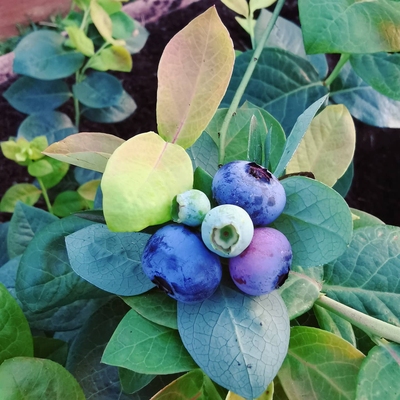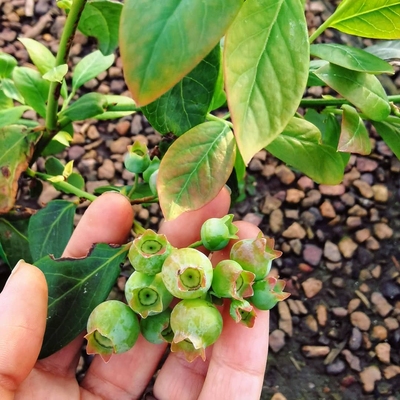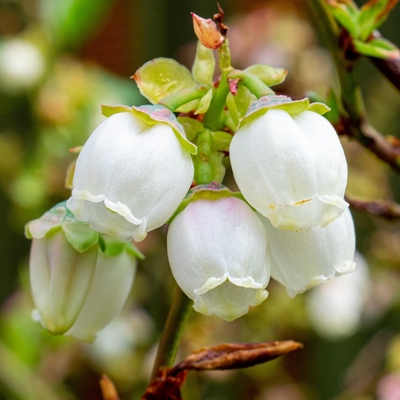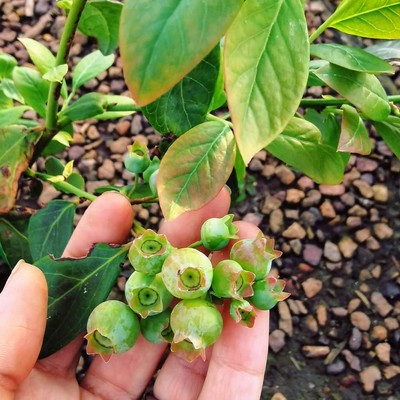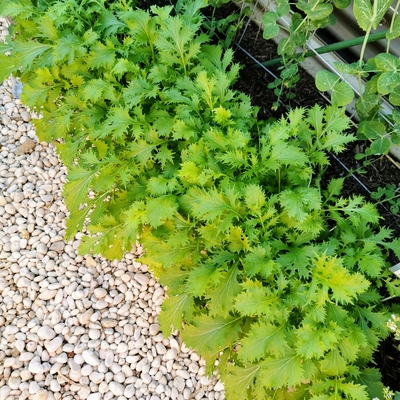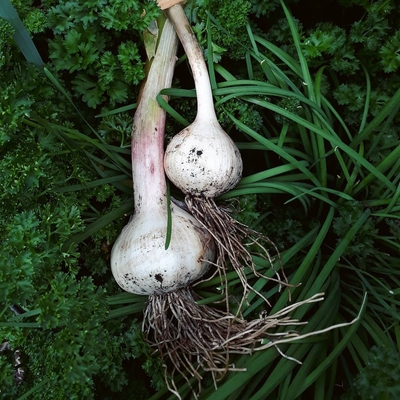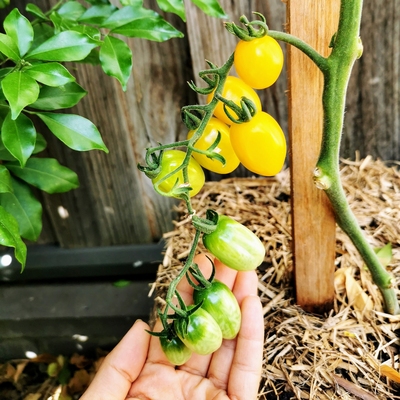A comprehensive guide to growing Blueberries, this article includes plant requirements, when and how to plant, care tips for watering and fertilizing your plants as well as information on pest control and harvesting.
 Soil
Soil
What soil is good for Blackberries?
Blueberry bushes rich, well draining soil with plenty of organic compost mixed in. Prefers a pH of 4 - 5.5.
Bagged soil that is suitable for Azaleas and Camellias is also perfect for growing Blueberries.
 Position
Position
How much sun do Blackberries need?
Plant Blueberry bushes in a sunny position.
 Frost Tolerant
Frost Tolerant
Are Blackberries frost tolerant?
Yes, Blueberry bushes are frost tolerant, but may need protection from severe frosts.
 Spacing
Spacing
How much space do Blackberries need?
Plant Blueberry bushes roughly 1m apart.
 Planting
Planting
When should I plant Blackberries?
Late autumn or early spring is the best time to transplant most dormant berry plants. Plants, with the exception of bare-root, can be transplanted at anytime between when the ground thaws and when it freezes (so anytime if you are in a frost free climate). However, if transplanting in the heat of summer, you'll need to be diligent in watering and provide extra shade for your plant in the first few weeks after transplanting.
Dig a hole 2-3 times the width of the root ball. The hole should allow the plant to sit at the same level in the soil as it was previously. Fill the hole with soil ensuring that the crown of the plant, where the roots and stem meet, is level with the soil surface.
Plant out in the early morning or evening and/or on an overcast day. Avoid planting at peak sun times or on windy days, this will allow your plants to settle in comfortably and protect them from windburn and sunburn.
Add a 2 inch layer of mulch around the plant to retain moisture. Blueberry plants are commonly mulched with Pine Needles.
 Feeding
Feeding
What do I feed Blackberries?
Apply Sulphate of Potash to the base of your Blueberry bush each spring, as well as a top dressing of compost. You can also add spent coffee grounds to the soils surface in spring to increase nitrogen levels.
Other options: A fertilizer that’s suited to Azaleas and Camellias can also be used on Blueberries, however these fertilizers are generally inorganic. For organic fertilizer options, fish meal and spent coffee grounds can be used for added nitrogen, bone meal and seaweed solution for added potassium and phosphorus. Coffee grounds and sphagnum peat can also be used to increase the soil acidity.
 Harvesting
Harvesting
When can I harvest Blackberries?
Continuous harvest the Blueberries throughout the season when the berries are deep blue in colour and come away from the stem easily.
 Pests
Pests
What pests do Blackberries get?
Pests that can affect Blueberries include: Aphids, Blueberry Bud Mite, Capsid Bugs, Flea beetle, Japanese Beetle, Leaf Hopper, Thrips.
 Diseases
Diseases
What diseases do Blackberries get?
Diseases that can affect Blueberries include: Grey Mold, Reversion Disease, Mildew, Scale Insects, Botrytis Blossom Blight, Mummy Berry, Powdery Mildew, Shoestring Virus, Stem Canker, Root Rot.
 Notes
Notes
Is there anything else I need to know about Blackberries?
Blueberry bushes generally don't require pruning for the first few years after planting. After that, at the end of each season, prune the plant in order to remove old or unproductive wood. Open up the center to let light and air in by removing any overlapping branches, this will help to prevent disease and increase growth and fruit production for the next season.
 Troubleshooting
Troubleshooting
How do I troubleshoot my growing problems?
While Blueberry plants are self-fertile, fruit set and crop size are improved by cross pollination. Planting more than 1 plant is beneficial but not essential.
